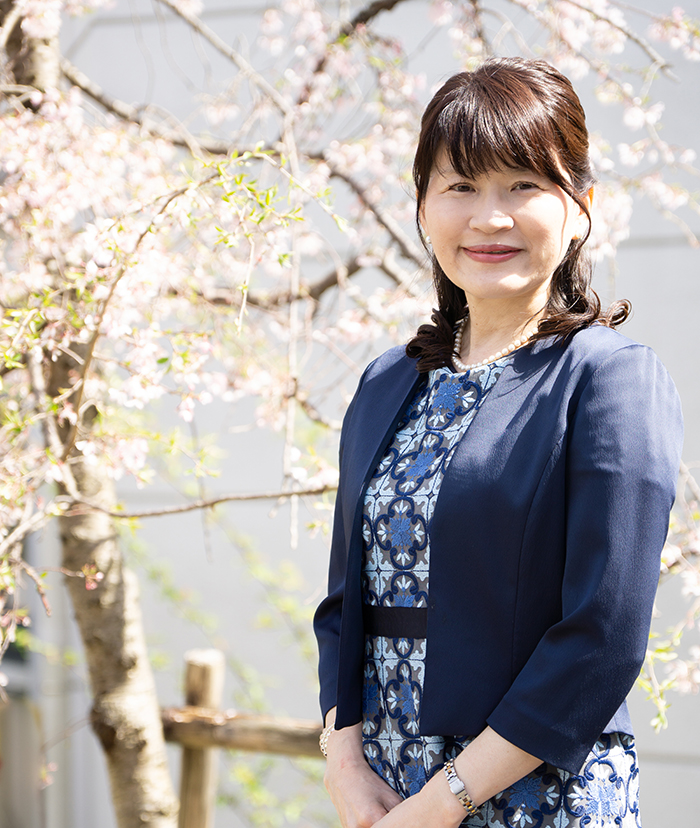Message from Dean Yoko Fujikake
“Constructing a Multicultural Society by Overcoming Differences”
When you hear the phrase Urban Sciences, what first comes to your mind?

Dean of College of Urban Sciences
According to a United Nations report, two-thirds of the world’s population is predicted to be living in urban areas by 20501 . Ever-growing urban areas and metropolitan regions in the world are pressed by various social, economic, environmental, and technological challenges that require our serious consideration, including large-scale migration from farmland to urban areas, transnational migration, persistent economic inequalities, the prevalence or increase of urban slums and blighted areas, the decline of population and an aging society, natural disasters and their prevention, climate change and environmental concerns, the availability and preservation of energy sources, and the needs for social and cultural diversity, including gender and ethnicities. Furthermore, it is imperative to build an inclusive society to meet the needs of diverse populations where the quality of life of all its citizens, such as people with disabilities, children, senior citizens, and foreign nationals is maintained through safe and affordable lifestyles. To undertake these challenges, interdisciplinary initiatives to collaborate on ideas and practices across different disciplines and specializations in the arts and sciences become highly important.
The College of Urban Sciences opened its doors in April 2017 to become Yokohama National University’s first new college in 50 years. We rigorously focus on active engagement in global and local issues, risk management, and innovation to forge leadership in the study of urban development and social planning, and to serve as a resource for ecologically-resilient, equitable, and well-designed progress and advancement. Correspondingly, we continually involve ourselves in critical and scientific analyses of urban problems by enhancing our understanding of social factors, such as history, traditions and culture, gender and sexuality, ethnicities, and social strata. We actively conduct, as well as advocate, optimal field practice domestically and internationally, offering our students the opportunity for field-based practice and local knowledge gathering through global/local and public/private sector and stakeholders.
Our approach to understanding urban development and social planning requires seeing the invisible and integrating macro and micro approaches. The ability to acknowledge perspectives that seem to exist in opposition or that may be complex becomes a crucial component in better understanding urban development. Likewise, transforming knowledge and ideas into practice is an indispensable skill in the future of urban planning. Problems existing in urban development may include a variety of contradictions. A metropolis can attract loneliness, biases and discrimination, and class hierarchy. We believe that cities do not need to be inorganic, impersonal, or mechanical but can be created intelligently to be organic, communicative, and connected with nature. Therefore, a critical yet flexible mindset and the ability to innovate and collaborate are also essentials in studying urban social/development.
The Covid-19 pandemic during 2020 and 2021 accelerated the use of communication technology, nevertheless, such technology or even Artificial Intelligence (AI) faces the difficulty of capturing the history and experience-based knowledge of the local people.
The need for studying urban social/development in multiple scales (neighborhood, village, city, region, national, and global) and through active engagement in the practice of place-making, requires encompassing cities as a place where people’s daily practice and memories can be found as a historical collective entity and obtaining a holistic knowledge based on the local practices and experiences.
In the College of Urban Sciences, four departments are in cooperation: the Department of Urban and Social Collaboration, the Department of Architecture and Building Science, the Department of Civil Engineering, and the Department of Risk Management and Environmental Science. Together, we join forces and work on teaching and research with the vision of interdisciplinarity in arts and sciences, and wide-ranging knowledge to advance the analyses of, and to solve pressing issues in urban, environmental, and humanitarian problems. Our college also aims to provide sustainable support to emerging and developing countries.
We see that our mission is to educate and raise future leaders and creators in urban development and social planning. Our graduates will not be controlled by AI but will be highly proficient to use it rigorously and responsibly as a major force for positive social change. We confront the challenges given by binary oppositions, contradictions, differences, and discrepancies. We would like you to join with us in this exploration and construction of an inclusive multicultural society.
1 Department of Economic and Social Affairs, United Nations, (Reported on May 16, 2018), available at,
https://www.un.org/development/desa/en/news/population/2018-revision-of-world-urbanization-prospects.html




